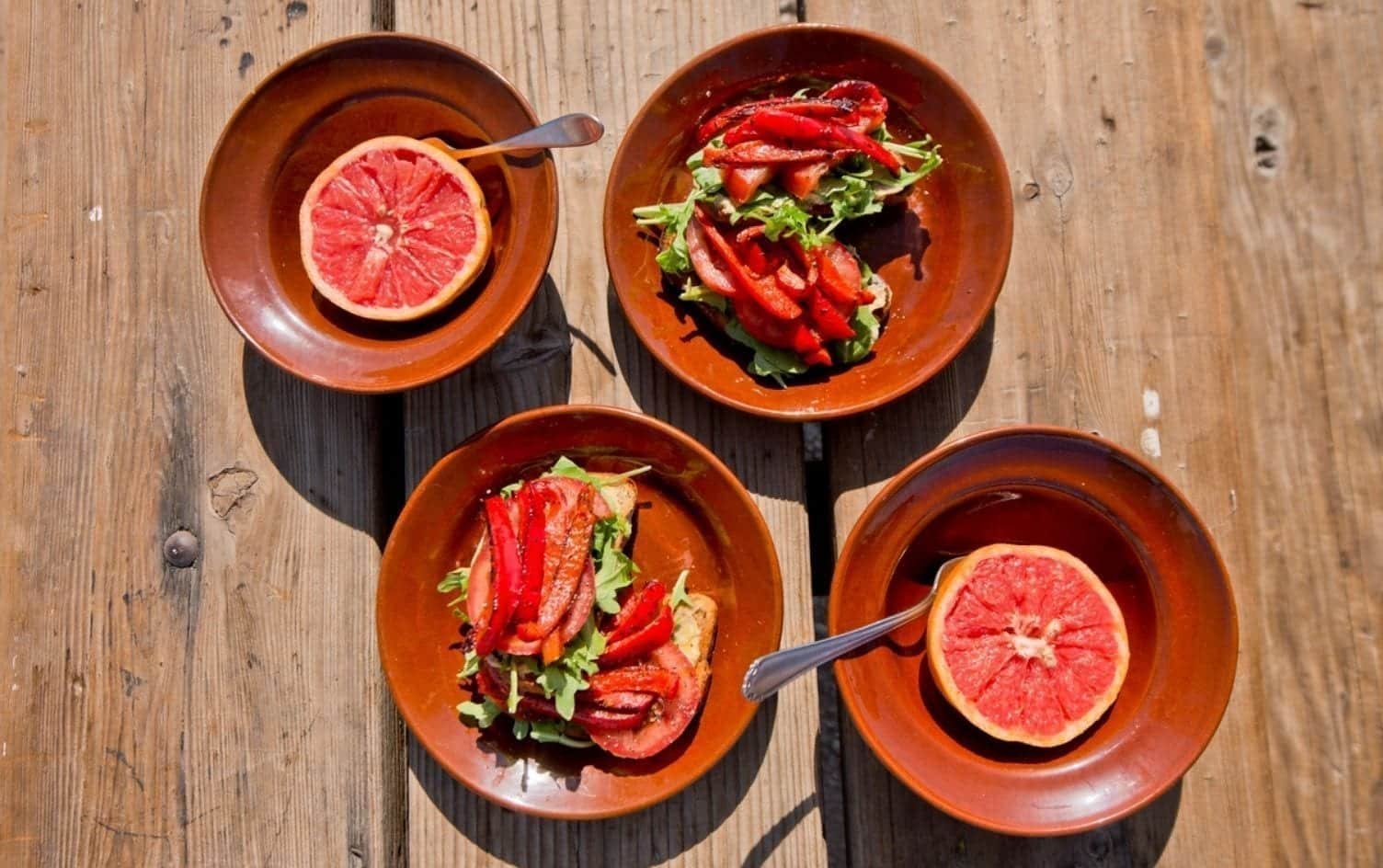The “grapefruit diet” is a diet that’s outlasted decades of diet trends and fads. Once called the Hollywood Diet, the grapefruit diet — in which you eat half a grapefruit at each meal — was born in the 1930s.
While the sweet-but-tart juicy citrus fruit might be delicious, does it hold up to its weight-loss lore?
ABOUT THE GRAPEFRUIT DIET
Well, not really. “The myth of grapefruit and weight loss has been around for years,” says Molly Kimball, New Orleans-based registered dietitian at Ochsner Fitness Center and host of the podcast Fueled Wellness + Nutrition. But it’s just that, she says: A myth.
Depending on what protocol you follow, you may consume the fresh fruit or drink the juice before each meal. Grapefruit was believed to be a weight loss-promoting food. In reality, though, the “Hollywood Diet” was an 800- to 1,000-calories per day diet followed for 12 days. It’s easy to see why someone might lose weight by consuming so few calories.
The truth is, if you’re consuming the juice, you’re adding a lot of calories and sugar to the meal. “You might as well be drinking sugary lemonade or sweet tea,” says Kimball. “When you’re drinking this, know that you’re not burning fat but helping your body store more fat with the excess sugar you’re adding,” she says.
THE SCIENCE
While there’s nothing wrong with incorporating grapefruit into your diet, even if you’re looking to lose weight, there’s just not enough evidence to suggest that the citrus—as it’s been rumored—dissolves fat, and there’s no evidence that focusing on grapefruit alone is the magic ingredient in weight loss, research notes.
In fact, some of the research suggesting grapefruit may be effective is older, small and the researchers come to a completely different conclusion than they set out to study. There are no good, recent studies on people to show grapefruit is anything but a delicious fruit.
A 2012 study in Metabolism evaluated 74 healthy, overweight adults broken up into two groups: One consumed a half grapefruit 15 minutes before each meal and another consumed a control diet for six weeks. Both groups were instructed to restrict their consumption of fruits and vegetables. Their results were ho-hum: The fruit did not help people feel fuller and eat fewer calories — and they did not lose a statistically significant amount of weight. That said, it did lead to a decrease in waist circumference and lower systolic blood pressure, leading researchers to conclude citrus could help reduce heart disease risk.
An earlier study in Nutrition & Metabolism randomly assigned obese adults to consume grapefruit, grapefruit juice or water before meals for 12 weeks. It’s important to note the researchers only picked grapefruit because it’s rich in water and because it had these rumored benefits. But what they found only furthered their suspicions: People ate less of the meal after consuming grapefruit or juice—but water was just as effective at reducing calorie intake at that meal.
THE VOLUMETRICS APPROACH
The researchers said that this is more evidence for the volumetrics-style approach of eating. One tactic is to eat or drink something water-rich and low in calories before a meal so that the high-volume food helps you fill up a bit first. (Volumetrics has a lot of data behind its weight-loss potential, being ranked No. 3 in the best weight-loss diets by U.S. News & World Report.)
And that works, says Kimball. But it doesn’t have to be grapefruit. It can be when it makes sense and you have a taste for it, say before an omelet or pancake breakfast. But doing it every time? You might not want grapefruit before a grilled chicken breast or a veggie pizza. In that case, why not keep the same volumetrics approach with a cup of herbal tea, a broth-based low-sodium soup or a salad, says Kimball. What’s more, you may also notice the constant acidity of citrus on an empty stomach can cause GI distress, she adds.
THE BOTTOM LINE
Grapefruit does not have special weight-loss powers and there is scant research to support eating the fruit or drinking the juice before every meal. If you’re a big fan of the fruit, feel free to keep enjoying it but don’t force it into your day.
Do you follow a volumetrics style of eating? Let us know what you like to munch on before your meals in the comments below!
Unlock an experience that’s like having a dietitian, trainer and coach — right at your fingertips. Go Premium for expert guidance and exclusive tools that will help you reach your personal health goals.




